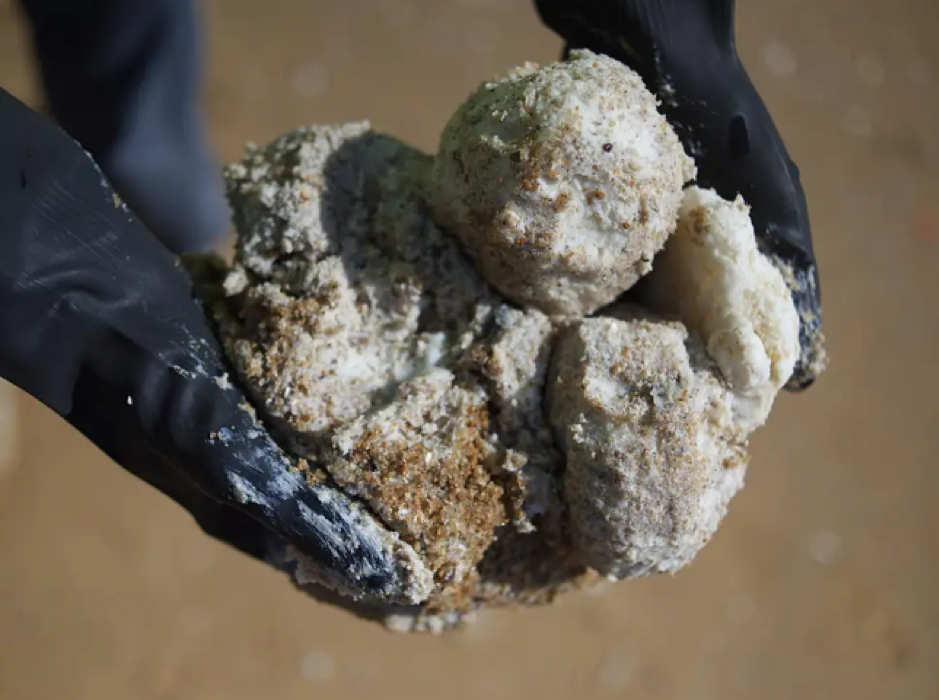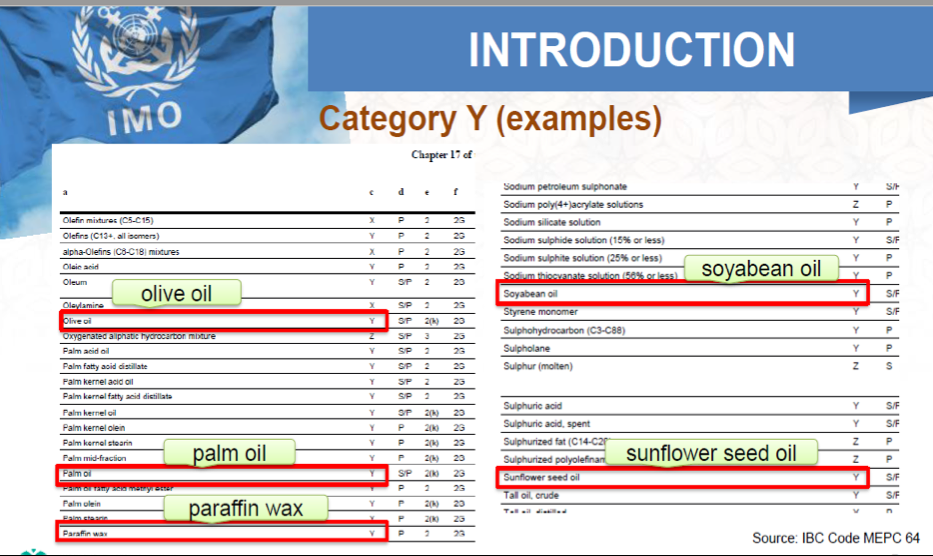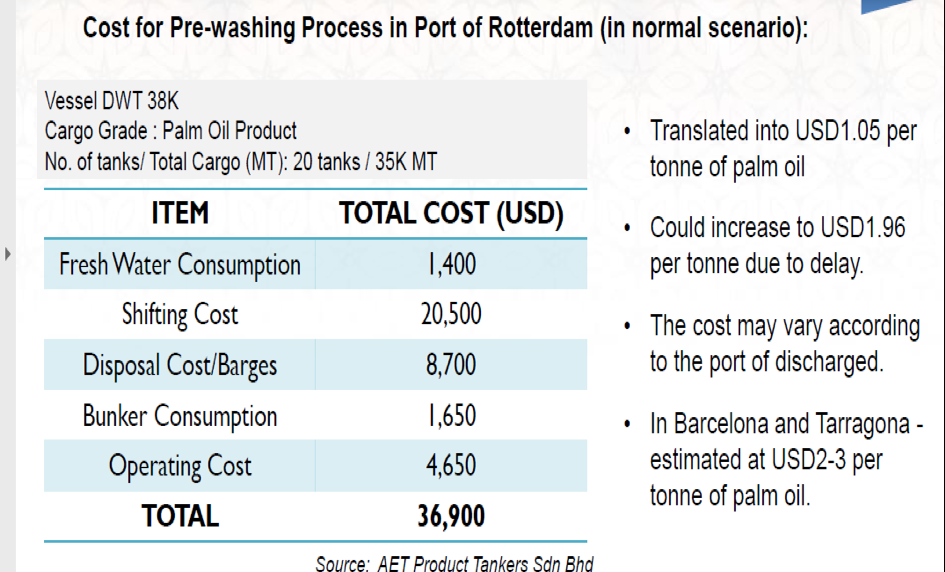Introduction
Global trade is heavily dependent on shipping and the shipping industry carries out about 90% of world trade through its vast and extensive network across all countries in the globe. This is a very heavily regulated industry which is regulated by the International Maritime Organization (IMO) of which Malaysia has been a member of the IMO since 1971 and was elected as a Council Member in 2015. Since the election, Malaysia actively participates in the formulation and decisions on policies as well as maritime programs of IMO.
As stated on the International Maritime Organization website:
“The International Convention for the Prevention of Pollution from Ships (MARPOL) is the main international convention covering prevention of pollution of the marine environment by ships from operational or accidental causes. Annex II covers Regulations for the Control of Pollution by Noxious Liquid Substances in Bulk. MARPOL Annex II Regulations for the control of pollution by noxious liquid substances in bulk sets out a pollution categorization system for noxious and liquid substances. The four categories are:
- Category X: Noxious Liquid Substances which, if discharged into the sea from tank cleaning or deballasting operations, are deemed to present a major hazard to either marine resources or human health and, therefore, justify the prohibition of the discharge into the marine environment;
- Category Y: Noxious Liquid Substances which, if discharged into the sea from tank cleaning or deballasting operations, are deemed to present a hazard to either marine resources or human health or cause harm to amenities or other legitimate uses of the sea and therefore justify a limitation on the quality and quantity of the discharge into the marine environment;
- Category Z: Noxious Liquid Substances which, if discharged into the sea from tank cleaning or deballasting operations, are deemed to present a minor hazard to either marine resources or human health and therefore justify less stringent restrictions on the quality and quantity of the discharge into the marine environment; and
- Other Substances: substances which have been evaluated and found to fall outside Category X, Y or Z because they are considered to present no harm to marine resources, human health, amenities or other legitimate uses of the sea when discharged into the sea from tank cleaning of deballasting operations. The discharge of bilge or ballast water or other residues or mixtures containing these substances are not subject to any requirements of MARPOL Annex II.
The annex also includes a number of other requirements reflecting modern stripping techniques, which specify discharge levels for products which have been incorporated into Annex II. For ships constructed on or after 1 January 2007 the maximum permitted residue in the tank and its associated piping left after discharge is set at a maximum of 75 litres for products in categories X, Y and Z (compared with previous limits which set a maximum of 100 or 300 litres, depending on the product category)”.
In any case, no discharge of residues containing noxious substances is permitted within 12 miles of the nearest land.
Reasons for enacting MARPOL Annex II
Since January 2010, approximately 66 recorded incidents involving the discharge of High Viscosity and Persistent Floating products have been reported by the countries affected by the discharge. In the past, there have been reports of lumps of palm oil, commonly referred to as ‘bergs’ been washedup on beaches in the news. These “bergs” are congealed lumps of palm oil that wash in from the sea from the ship discharge which are usually white or yellowish in colour and have a waxy texture. Although there are concerns about the toxicity of these “bergs”, it has been proven that palm oil bergs are not toxic as it is actually degraded edible oil which essentially is a natural product and will not cause harm upon contact.

The reason for this is that ship owners wash their vessels and remnants of the cargo are often washed out with the water and discharged into the ocean. Based on international laws (MARPOL Annex II and IBC Code) set by the International Maritime Organisation, chemicals including vegetable oils are allowed to be discharged into the ocean. This practice is to ensure transparency across the board and as long as the ship owner follow the rules for the discharge process they will not be considered as breaking the law.
The cost of cleaning the beaches is borne by the countries affected by the discharge and there are claims that the discharge affected seabirds quite significantly with many seabirds dying as a result of becoming coated in the substance. Based on these incidents, the following facts stand out:
- Continued reports of waxes and vegetable oils being washed ashore along one coastline bordering the North Sea, with deposits varying from brick size to small lump
- 20 tonnes cleaned up from one beach and a 27 nautical mile yellow slick trailing behind a vessel
- Two successful prosecutions of vessels making illegal discharges
- Used vegetable oil (declared as Yellow Grease) being discharged
- The cost of beach cleaning ranging from several thousands to in excess of 0.5 Million Euros, each depending upon the severity of the incident.
As a result, during the IMO meeting in 2016, Norway and Sweden proposed amendments to MARPOL Annex II to further reduce the impact on the environment of tank washings containing high-viscosity and persistent floating products. Among the suggestions to alleviate this problem are:
- To require vessel to undergo pre-wash process and discharge the cargo residues to the port reception facilities.
- To review the definition of solidifying substances and high-viscosity substances.
In addition, they have also re-defined the discharge substance under the following categories:-
- High-viscosity substance: Category X or Y with viscosity equal to or greater than 50 mPa·s at 20°C. (previously → at the unloading temperature)
- Solidifying substance means a noxious liquid substance which has a melting point at or above 0°C
Classification of palm oil according to IMO
Palm oil and palm based products has been classified under “Category Y” of the new MARPOL regulations.

Other oils included under category Y are soybean oil, sunflower oil and olive oil and transporter of these oils will be subject to the same regulations as palm oil. As for type of vessels, ships carrying palm oil will have to be categorized under Type 2; a tanker intended to transport potentially environmental and safety hazards which require significant preventive measures to preclude an escape of such cargo.
To comply with this regulation, palm oil exporters will have to use vessels or chemical tankers which have double hulls to transport. Previously vessel type used to transport of palm oil was categorized as unrestricted.

In accordance with the result of the hazard evaluation process and the new categorization system, vegetable oils including palm oil which were previously categorized as being unrestricted will now be required to be carried in chemical tankers.

Under the revised Annex, Regulation 4 Exemptions, provisions are made for to exempt ships certified to carry individually identified vegetable oils, subject to certain provisions relating to the location of the cargo tanks carrying the identified vegetable oil.
Palm oil and its products is categorized as “chemicals” under “Y” category of IBC Code

Impact of MARPOL Annex II on palm oil
The new definition requires palm oil and other major vegetable oils to undergo a pre wash procedure. As the largest vegetable oils traded globally, any changes related to the regulation in the shipment of vegetable oils will significantly affect the oil palm industry. This amendment to MARPOL Annex II was adopted at the 74th MEPC held on 13 -17 May 2019 and the entry into force date would be on 1st January 2021 and the areas to which the regulation will apply are the North West European waters, Baltic Sea, the West European waters and Norwegian waters.
Cost of complying with MARPOL Annex II
The cost elements for pre-washing in order to comply with this new regulation would comprise:
- Fresh water consumption (wash water in each tank required is about 5 – 7 MT)
- Shifting costs from discharge berth to layby berth
- Disposal cost
- Bunker consumption (to heat wash water point to more than 60 C, about 3 MT is required and each tank of pre wash cycle takes about 16 20 minutes)
- Other operating cost

There are also many other issues when it comes to complying with this new regulation. Not all ports are equipped with Port Reception Facilities (PRF) to dispose the residue. This inadequate facilities may lead to port congestion and chances of longer waiting time resulting in higher demurrage charges. The current cost of shipping palm oil to Port of Rotterdam is between USD40 to USD70 per tonnes. A pre-wash operation for vessel carrying 35,000 tonnes palm oil to Port of Rotterdam will increase to USD68,600 or USD1.96 per tonne of palm oil due to expectation of longer waiting time at port. This could result in an increase of between 2.5% to 7.1% to the current shipping cost of palm oil from Malaysia to Port of Rotterdam.
Conclusion
This new amendment will definitely have a negative impact on the shipping business particularly in the transport of the oil palm and the industry as a whole. Although it applies to other vegetable oils seem to target palm oil as it is the single most imported oil to Europe and has long seen as a threat to domestically produced vegetable oils. All other edible vegetable oils like sunflower, soybean and others could possibly wash up ashore especially if there are oil spills from tankers during accidents. If the regulation is implemented, additional costs are expected to be incorporated in the palm oil price especially in Europe thus making it less competitive versus other vegetable oils. In 2019, Europe imported about 7.8 million tonnes of palm oil and is expected to import at least 8 million tonnes in 2021. If the MARPOL Annex II regulations are to be applied, it would cost exporters an additional between USD16 million to USD 20 million to export palm oil. This additional cost would have to be passed on to consumers thus making it less competitive.
Apart from the increased costs due to higher charter rate, other implications of this new regulations are:
- Negative perception about palm oil will be heightened – The decision by IMO to shift palm oil category from “X” to “Y” may be seen as an attempt to further discredit palm oil and add more stringent conditions to its use and transport
- The possibility of MARPOL Annex II regulations be expanded – There is a possibility that further efforts may be in the pipeline to extend to include other geographical areas such as India and China; the two biggest palm oil consumers in the world
Having considered all facts, palm oil is ultimately still food and whatever gets washed out will be eaten by fish and wild animals. A more stringent requirement may also discourage the shipment of palm oil to the temperate water area such the EU. Adding to this challenge is the lack of readiness of the receiving ports in implementing the requirements due to the lack of suitable cleaning facilities. The anticipated delay would further inflate the ship operational cost, thus the overall shipment cost of palm oil. It could also be construed that this new regulation is another attempt of putting a non-tariff barrier against palm oil. Other vegetable oils, although affected by the new ruling will not be feeling the impact as much as palm oil. Most of the domestically produced vegetable oils such as sunflower oil, rapeseed oil and olive oil are transported internally using land transport such as by trains or cargo trucks and the MARPOL regulations will not apply on such mode of transport. It is well known that the European region has a very strong anti-palm oil stance and the new ruling is yet another step to make palm oil lose its competitiveness against domestically produced vegetable oils.
Prepared by Mohd. Izham Hassan
*Disclaimer: This document has been prepared based on information from sources believed to be reliable but we do not make any representations as to its accuracy. This document is for information only and opinion expressed may be subject to change without notice and we will not accept any responsibility and shall not be held responsible for any loss or damage arising from or in respect of any use or misuse or reliance on the contents. We reserve our right to delete or edit any information on this site at any time at our absolute discretion without giving any prior notice.

